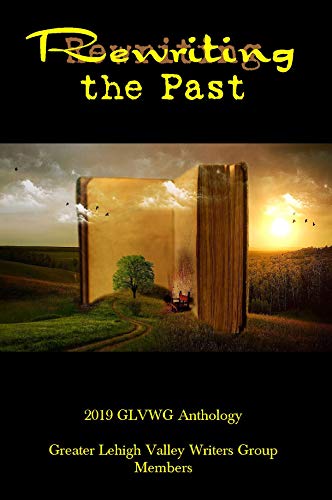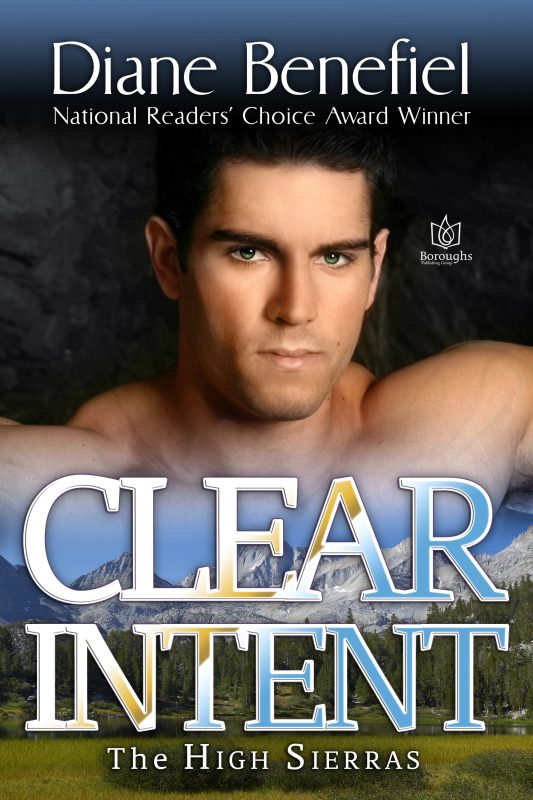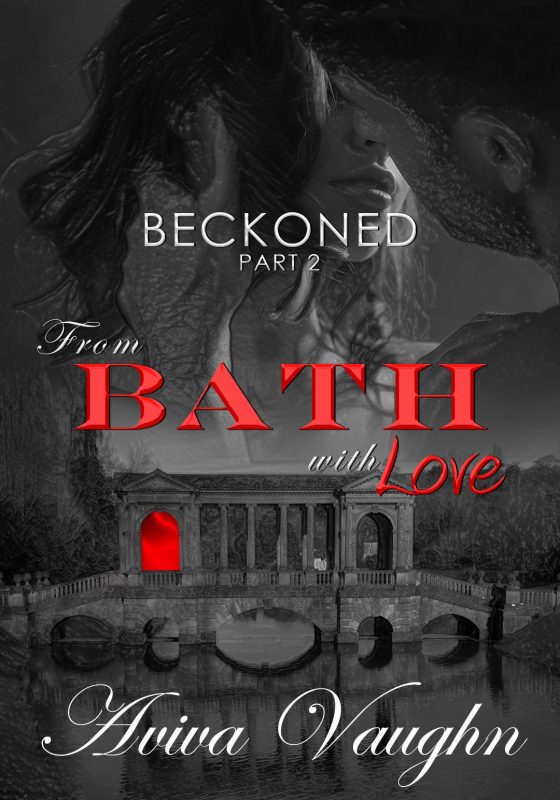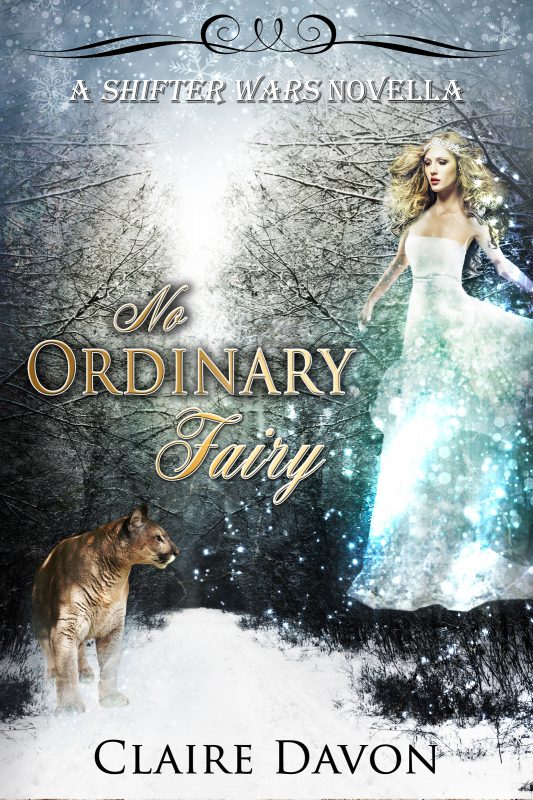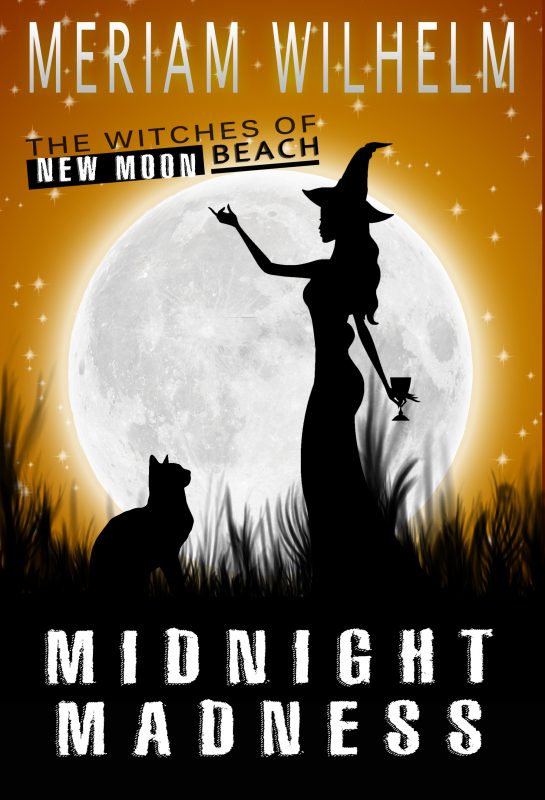Celebrating Where I Am
April 12, 2017 by Denise M. Colby in category The Writing Journey by Denise Colby, Writing tagged as Growth. Learning, writing Sometimes I look at my manuscript and feel I have so much to learn still, so much to do before my work is print worthy, and this awful feeling of hopelessness overcomes me. What am I really doing? Will I ever get it right? And then I start telling myself other authors don’t run into this same problem, do they? Maybe I’m not cut out for this.
Sometimes I look at my manuscript and feel I have so much to learn still, so much to do before my work is print worthy, and this awful feeling of hopelessness overcomes me. What am I really doing? Will I ever get it right? And then I start telling myself other authors don’t run into this same problem, do they? Maybe I’m not cut out for this.
And then I go to one of my writing group meetings and realize I’m not the only one to feel this way. Writing is such a solitary experience, yet when you get together with other writers you share all the same questions, concerns, and thoughts.
I love the writing groups I’m a part of. I’m a member of Romance Writers of America (RWA) and my local chapter (OCCRWA) and an online chapter called Faith, Hope & Love (FHLRWA). I’m also a member of American Christian Fiction Writers (ACFW) and my local chapter (OCACFW). It’s a lot to keep track of but it’s so important to stay connected with other writers in your genre. In person and online, I’ve met so many wonderful people and learned so much. When I think about the meetings, online classes, and notes I’ve taken over the last three years, I’ve come a long way.
It also makes me realize how important it is to take time to reflect back from where I started and see just how far I’ve come.
I knew nothing of the writing world terminology, yet I now can have a conversation and understand most of the lingo, spouting off terms such as ms, dialogue tags and GMC. I know now, authors don’t get it perfect the first time, sometimes writing through three, four or even more edits after the rough draft.
I’ve learned about understanding your characters more, figuring out what the hero/heroine goals, conflicts and motivations are. I can throw stuff at my characters to see how they will respond. I’ve seen a character take a life of their own and get themselves into a whole heap of trouble. And how fun it is to watch it evolve on the page.
I’ve learned how to set up my website, social media accounts and write my author profile. I’ve figured out my author brand, audience and the genre I prefer to write. I’ve read several new authors, expanding my knowledge both as a reader and a writer.
I’ve entered contests and learned what “on the nose” dialogue is, that passive voice does not mean the same thing as past tense, and to be really careful not to tell but show action and how hard it is to do. I’ve learned my initial writing is full of data dumps and I now can delete words without panicking. I’ve survived receiving constructive feedback and now know, it’s not the end of the world.
As I reflect back, I realize, even though I have so much still to learn, I have come so far and that is something to be really proud of. It’s nice to know I have made many new friends who are rooting for me each step of the way.
I am so thankful for these writing groups and all the wonderful writers who have opened their hearts and minds to share what they’ve learned to us newbies. I look forward to someday being able to do the same in return.
And if you are not a part of a writing group, I encourage you to come visit one of our meetings.
Denise M. Colby
Denise M. Colby loves learning about history and reading fun, uplifting, encouraging stories that cherish and warm the heart. Combining two of her loves, she is working on her first inspirational historical romance, featuring Olivia Carmichael, a young lady who loses everything, including her faith, travels to California to teach and finds love in many different forms along the way. Passionate about all types of stories – whether they are from songs, theatre, movies or novels, Denise loves sharing these passions with her husband and their three boys. You can follow along with Denise on her writing journey at www.denisemcolby.com
WEB CONTACTS
Website: www.denisemcolby.com
Blog: www.denisemcolby.com
Facebook: https://www.facebook.com/denisemcolbywrites/
Pinterest: pinterest.com/denisemcolby
Twitter: twitter.com/denisemcolby
12 0 Read moreAccidental Author
April 10, 2017 by Tari Jewett in category Charmed Writer by Tari Lynn Jewett tagged as Antelope Valley Press, author, Butterfield Express, Charmed Writer, Moreno Valley News, Tari Lynn Jewett, Toastmaster's, writing
Bored, twenty-one, living in Sunnymead, California- when there was nothing there but the Riverside Raceway and Naugles… and I had a baby. I was a brilliant parent. After all, I’d been a mother for all of nine months, had a perfect baby, and had gotten married at nineteen instead of going to college. I was more than qualified to give parenting advice to other people.
So, I decided to write a parenting column.
I wrote several sample columns, and without even thinking that I should call and make an appointment, I dropped by the office of our local newspaper, The Butterfield Express and asked to see The Editor.
Yes, I did.
The Editor came out, quickly reviewed my samples and said “Sure we can use this.” Well of course she did! The newspaper paid $5 a column. Wow, they were actually willing to pay me!
A few years later I’d returned to school, divorced, and decided I wanted to be a lawyer. And, I’d started dating a lawyer. Obviously the smart thing to do was to write some sample law columns, take clips of my parenting column from the Butterfield Express, and march straight into the offices of the brand-new Moreno Valley News…without making an appointment. Yes…I did.
The Editor did see me, he looked over my samples and said he’d get back to me. When my lawyer boyfriend heard what I’d done, he thought it was hysterical, and made sure that I knew that I’d never get that law column. I wasn’t qualified, and I didn’t have a clue what I was doing. He was right of course.
But one Monday morning bright and early the telephone rang. It was not The Editor of the Moreno Valley News. No, it was my lawyer boyfriend. “What have you done?” He shrieked into the phone. He ranted for several minutes before I figured out what had happened.
Apparently, The Editor at the Moreno Valley News had decided to publish my column, only he didn’t tell me. He’d published a sample column on Planning a Will. The problem was that I’d cleverly added a note to the bottom of the article that said “for a free will planning guide, send a self addressed stamped envelope to the Law Offices of H & B”, my boyfriend’s law office. Mr. H had come in to work that morning to find a pile of envelopes all requesting his non-existent free will planning guide.
Don’t tell me that I can’t write a law column.
So, I wrote a Will Planning Guide, and the Moreno Valley News paid me $20 a piece for my little law column.
A year later, while working full time at a car dealership as a cashier in their service department, I mailed a query for an article on ‘how to get people to listen to you’ to The Toastmaster. Keep in mind, writing was a hobby. I never considered it a career. I hated numbers, and back at the car dealership, my register never balanced. It was never off more than some change, sometimes over, sometimes short..whatever it was, the numbers didn’t add up. Of course there came a day when my manager who liked me and knew I was a single mother, reluctantly called me into the office and told me he had to let me go.
The phone rang insistently as I arrived home that night with my little boy. It was the editor of the The Toastmaster. Could I could get my article to her by Friday? It just so happened the theme of her current issue was ‘listening’ and all of the article submissions she’d received were on improving your listening skills, but Toastmaster’s is, of course, a public speaking organization, and she loved my idea to write an article on how to get people to listen to you. The assignment paid $75 for an article that took my about four hours to write, and I didn’t have to pay for child care.
I never looked back. I wrote articles and columns, press releases for products, for magazines, newspapers, catalogs and more. But it wasn’t a job. I never considered myself a writer.
In fact, when I met my Hunky Hubby- no, not the lawyer, that didn’t last long- and he asked what I did, I told him I was a student (I had returned to school) and that sometimes I wrote freelance articles. He said “Oh, you’re a writer.”
I said, “No, I just write to earn a little money.”
We fell in love, got married, bought a house in the Antelope Valley and had two more little boys. I continued writing my little articles, though not as frequently and then one day the phone rang. The editor of the food section for the Antelope Valley Press Enterprise was looking for a Lori Jewett. Now Jewett is an unusual name, and when she asked, I assumed it was me she was looking for because when I write Tari in handwriting it sometimes resembles Lori.
“Did you submit a recipe for Cook of the Week?” She asked.
Now this was weird. I had NOT submitted a recipe for cook of the week, in fact, I wasn’t much of a cook, but I had one good recipe, Flemish Beef Stew, and I’d filled out the form for Cook of the Week, including that recipe and stuck it to the refrigerator with a Thomas the Tank Engine magnet. I turned around to look. It was still there.
After a good laugh and a long conversation with the food editor, I ended up with my recipe and a half page article about our ‘wrong number’ phone call in the Antelope Valley Press…and a new cooking column. Later, I used those clips to get a cooking column in Quick ‘N Easy Country Cooking Magazine. Did I say I couldn’t cook?
Although I wasn’t ‘A Writer’, I wrote freelance for magazines and newspapers for over fifteen years.
My boys are all grown, and things have changed. I would never show up at an editor’s office without an invitation, I’ve raised three boys to adulthood and know that I’m not qualified to give parenting advice, and I have more than one decent recipe. But more importantly, now I’m writing because I want to be a writer. Yes, I write because it’s my passion, but I also take it seriously. It’s a career.
So, I guess I’m no longer an accidental author.
I’m an intentional author
18 1 Read moreThe Fun of Research: #Travel & California Gold Country @LyndiLamont
March 16, 2017 by Linda McLaughlin in category The Romance Journey by Linda Mclaughlin tagged as California, gold country, historical romance, Linda McLaughlin, research, Travel, Western romance, writing One of the most enjoyable parts of researching a new book is when I get to travel to the location where the book is set. That’s the case with my latest release, Lily and the Gambler, a Western historical romance set in California’s Gold Country.
One of the most enjoyable parts of researching a new book is when I get to travel to the location where the book is set. That’s the case with my latest release, Lily and the Gambler, a Western historical romance set in California’s Gold Country.
Western romance is popular again right now, but most of the books are set in other states, ones that are more associated with ranching, like Montana and Texas. In California, Western history means gold mining towns.
My husband and I toured California Gold Country twice some years ago and I fell in love with it. The area is best enjoyed by driving State Highway 49. We started at the southern end, in Mariposa, and drove north to Sacramento, and then Grass Valley and Nevada City, where my book is set Valley in September 1868. I recall scribbling descriptions of the scenery as we drove along.
She watched mile after mile of open spaces pass by, all bathed in brilliant sunlight. In the distance, clusters of dark green trees dotted a hillside, standing out in contrast to the lighter yellow-green of the grass. Wispy white clouds, without a hint of rain in them, streaked the sky, separating shades of blue ranging from pale turquoise to bright azure.
We made the trip twice, first strictly as a vacation, though I kept thinking how I’d like to set a book in the area. The second was a research trip for me, if not for my DH. At one point, he threatened to divorce me if I dragged him through one more mining museum!
A lot of the old Victorian homes have been turned into bed and breakfasts, and we took advantage of that to stay in some lovely old homes.
Interesting stops along the way include:
Sonora, a lovely little town that hosts the Railtown 1897 State Historic Park. For the kid in all of us.
Columbia State Historic Park, the best preserved Gold Rush town.

California Columbia carriage in a real old Western Gold Rush Town in USA
Angels Camp, where Mark Twain heard a story on which he based his short story “The Celebrated Jumping Frog of Calaveras County.”
Placerville, formerly nicknamed Hangtown for the zeal of its law enforcement.
And my favorite, Grass Valley, a charming town with the attraction of having the wonderful Empire Mine State Historic Park, a fascinating glimpse into the lives of 19th century miners. I could see the rudimentary escalator they used to convey the miners down into the shafts, holding their lunch boxes, spherical tins that held tea in the bottom and a pasty on top. At the boarding houses, the cooks carved each miner’s initials into one end of the dough before baking them.
Grass Valley was especially interesting to me because of the large Cornish population in the 19th century. This area had deep gold veins that couldn’t be panned. The Cornish miners were encouraged to come because of their experience in the tin mines of Cornwall, which were petering out. To this day, the Cornish pasty is a local treat, and the city still celebrates a Cornish Christmas. I chose to make my heroine a Cornish lass looking for a respectable husband. Of course, she falls in love with a gambler.
If you’re up this way, do take a side trip to Sacramento, the state capital, with its charming Old Sacramento historic area, and the amazing California State Railroad Museum. This is one of my all-time favorite museums. It was fun to climb aboard the old trains and imagine a different time.

California poppies
If Bob were still around, I’d be nagging him to take another drive north. After all the rain, the scenery should be gorgeous this spring, esp. when the poppies are in bloom.
by Linda McLaughlin
Blurb: Respectability is in the eye of the beholder, or so Lily hopes. After her lover’s death she pretends to be his widow and travels to California to marry a mine owner. Then she meets King Callaway, a charming gambler. King knows he’s found his Queen of Hearts. But can he convince her to take a chance on a foot-loose card sharp? Only Lady Luck knows for sure…
Available at Amazon and Barnes & Noble.
 Linda McLaughlin grew up with a love of history, so it’s only natural that she sets most of her books in the past. She loves transporting her readers into the past where her characters learn that, in the journey of life, love is the sweetest reward. Linda also writes steamy romance under the name Lyndi Lamont, and is one half of the writing team of Lyn O’Farrell. A native of Pittsburgh, she now lives in Orange County, California.
Linda McLaughlin grew up with a love of history, so it’s only natural that she sets most of her books in the past. She loves transporting her readers into the past where her characters learn that, in the journey of life, love is the sweetest reward. Linda also writes steamy romance under the name Lyndi Lamont, and is one half of the writing team of Lyn O’Farrell. A native of Pittsburgh, she now lives in Orange County, California.
Website: http://lindalyndi.com
Blog: http://lindalyndi.com/reading-room-blog/
Facebook: http://www.facebook.com/LindaMcLaughlinAuthor
Twitter: @Lyndi Lamont https://twitter.com/LyndiLamont
Everyone Wants to Write a Book by Connie Vines
February 13, 2017 by A Slice of Orange in category Writing tagged as Connie Vines, Cowboys, Free eBooks, Valentine's Day, writing
Topic for February: Everybody wants to write a book, but most do not.
Writing is hard work . What got you started, and what helps you get through a complete story?
. What got you started, and what helps you get through a complete story?
How many times have you heard someone say, “Someday I’m going to write a book?” Many a time, I”m certain. However, most do not.
Why? Because writing is hard work.
What got me started? Like most children, I loved reading, drawing, and listening to the oral family history spoken by my grandparents. I also like to write stories (not particularly good stories) but for a second grader I did have a handle on the concept of plotting. Thinking back, I unnerved adults with my pointed interview questions, and thoughts about the meaning of life and life-after-death vs death-after-death. Picture: Tuesday Addams wearing glasses and constantly grumbling about receiving yet, another stupid doll instead of a filling cabinet for her birthday.
When, exactly, did I start and complete my first novel?
While I wrote short-stories, nonfiction articles for publication during my twenties, I didn’t get serious about completing a novel until thirties. My children were in school and I worked part-time. That gave me a block of free time to write (vs the scribbling on 3 x 5 index cards when I was cooking dinner or a note pad during a child’s 1 hour nap). I was serving on my church board when the choir soloist told me her sister was a co-president of the Orange County Chapter of RWA (Romance Writers of America). At the time, I hadn’t every thought of writing a romance. I wrote for the YA and middle school market and dabbled in historical fiction, but Shirlee convinced me that the networking and workshops would be beneficial to me. She was correct.
Attending monthly meetings/workshops, exchanging rough drafts with my critique members during lunch, and input from the multi-published members gave me the confidence to persevere. It also made me crawl out of bed after my husband left for work (at 3:00 in the morning) and write before getting my children off to school.
I also discovered that I couldn’t give up my YA stories while I found my footing in a new market.
“So, what did Connie do?” you ask.
I work two novels at once which I still do to this very day.
Crazing making? Yes!
Writing romance isn’t easy. Strong, well-developed characters, good plot (and multiple subplots), sharp dialogue, and emotion-lots of emotion.
Writing is addictive. The story unfolds, the characters present themselves, and away the writer goes into a new Universe.
What makes me complete my novel/story?
The best way for me to describe the feel is I am driven to finish the story. Native Americans say the story chooses the Storyteller. It the Storyteller’s responsibly to bring the story to life.
Happy Reading and Happy Valentine Day!
My Rodeo Romances (Lynx and Brede) are on sale this month (click on my Amazon Author Page link). Even Zombies need love. Indulge in a little Zombie Valentine Romance. For FREE!! Here Today, Zombie Tomorrow on Amazon.com
Connie
0 0 Read moreI’m a Bookaholic
December 20, 2016 by Meriam Wilhelm in category A Bit of Magic by Meriam Wilhelm, Reading tagged as books, magic, Meriam Wilhelm, reading, writingI am a confessed Bookaholic.
For as long as I can remember I’ve cherished every opportunity to get lost within the pages of a good book. Nothing is sexier to me than the sound of cracking open the spine of a crusty hardback and nothing more enjoyable than being introduced to a character I never knew existed.
I understand that the reason I so love to write is because I am enamored with and made whole through reading. Even if it’s only ten minutes a day spent looking for a clue, discovering a new land or getting lost in the emotions of another, I’ll find the time. I can always count on a book to bring me comfort, challenge my status quo or add magic to an otherwise drab day.
It may sound strange to some, but I enjoy reading two or three books at one time. Never bored, I’m constantly seeking out new words, phrases and ways of illustrating ideas through language. So you can be sure that I was a bit distressed when a friend shared with me that she thought I was being lazy by spending so much time engrossed in a particular story.
I was initially stunned, then a little baffled and then just plain fired up – motivated to take on a new quest.
Reading is not being lazy. What better way is there to develop vocabulary, validate life choices, challenge intellectual abilities, open new worlds, contemplate conflicting ideas or find unique topics to engage others in conversation?
Reading rocks my world and encourages me to pry open doors that have threatened to close due to years of aging. I’ll take an enticing mystery, a melancholy love story or an adventurous travel sequel to any evening mindlessly sitting in front of the television, and I like television!
I hope over the upcoming holidays you find a moment to dream a little, travel through time or expand your world through a good book. And if you happen to stumble upon a friend enamored with the pages of a hardback, paperback or manuscript – take a moment to ask them what they’re reading. You might like what they have to share. But whatever you do, please don’t presume that they’re just being lazy.
About Meriam Wilhelm:

The one thing I know, after all my years as an elementary school principal, is that there is magic everywhere and in everyone. When I retired after 35 years in education, I longed to share all that I had learned and created several parenting books on topics from bullying to homework strategies. While I miss those enchanting moments with children and their parents, I always wanted to let my imagination run wild as I sought out my own magic and wrote about it. In short, I was lured into the world of fiction writing where I soon created my first series, The Witches of New Moon Beach. The first book, Morning Magic is currently FREE on Amazon.
Inspiration isn’t hard to find as I have lived in Redondo Beach, California all my life and New Moon Beach might have more than a passing resemblance to my hometown. Every day I walk on the path that runs along the beach, sometimes with my sisters, but most often with my thoughts as I plot out my next book. I am long married and mom to three great grown kids. When I’m not writing or walking on the beach, you’ll find me sewing, reading or traveling and taking pictures.
Feel free to check out my website: www.meriamwilhelm.com or contact me by email: meriamwilhelm@hotmail.com
0 0 Read moreAffiliate Links
A Slice of Orange is an affiliate with some of the booksellers listed on this website, including Barnes & Nobel, Books A Million, iBooks, Kobo, and Smashwords. This means A Slice of Orange may earn a small advertising fee from sales made through the links used on this website. There are reminders of these affiliate links on the pages for individual books.
Search A Slice of Orange
Find a Column
Archives
Featured Books
BECKONED, PART 2: FROM BATH WITH LOVE
Can fire and ice both survive?
More info →MIDNIGHT MADNESS
As if Olivia Merriman doesn’t have enough to do in her beloved town of New Moon Beach, now her grouchy great-grandmother has recruited her to head up their coven of witches; her sisters are miffed, the coven is pushing her to accept the job, and to top it all off an evil wizard is messing with her love life.
More info →Newsletter
Contributing Authors
Search A Slice of Orange
Find a Column
Archives
Authors in the Bookstore
- A. E. Decker
- A. J. Scudiere
- A.J. Sidransky
- A.M. Roark
- Abby Collette
- Alanna Lucus
- Albert Marrin
- Alice Duncan
- Alina K. Field
- Alison Green Myers
- Andi Lawrencovna
- Andrew C Raiford
- Angela Pryce
- Aviva Vaughn
- Barbara Ankrum
- Bethlehem Writers Group, LLC
- Carol L. Wright
- Celeste Barclay
- Christina Alexandra
- Christopher D. Ochs
- Claire Davon
- Claire Naden
- Courtnee Turner Hoyle
- Courtney Annicchiarico
- D. Lieber
- Daniel V. Meier Jr.
- Debra Dixon
- Debra H. Goldstein
- Debra Holland
- Dee Ann Palmer
- Denise M. Colby
- Diane Benefiel
- Diane Sismour
- Dianna Sinovic
- DT Krippene
- E.B. Dawson
- Emilie Dallaire
- Emily Brightwell
- Emily PW Murphy
- Fae Rowen
- Faith L. Justice
- Frances Amati
- Geralyn Corcillo
- Glynnis Campbell
- Greg Jolley
- H. O. Charles
- Jaclyn Roché
- Jacqueline Diamond
- Janet Lynn and Will Zeilinger
- Jaya Mehta
- Jeannine Atkins
- Jeff Baird
- Jenna Barwin
- Jenne Kern
- Jennifer D. Bokal
- Jennifer Lyon
- Jerome W. McFadden
- Jill Piscitello
- Jina Bacarr
- Jo A. Hiestand
- Jodi Bogert
- Jolina Petersheim
- Jonathan Maberry
- Joy Allyson
- Judy Duarte
- Justin Murphy
- Justine Davis
- Kat Martin
- Kidd Wadsworth
- Kitty Bucholtz
- Kristy Tate
- Larry Deibert
- Larry Hamilton
- Laura Drake
- Laurie Stevens
- Leslie Knowles
- Li-Ying Lundquist
- Linda Carroll-Bradd
- Linda Lappin
- Linda McLaughlin
- Linda O. Johnston
- Lisa Preston
- Lolo Paige
- Loran Holt
- Lynette M. Burrows
- Lyssa Kay Adams
- Madeline Ash
- Margarita Engle
- Marguerite Quantaine
- Marianne H. Donley
- Mary Castillo
- Maureen Klovers
- Megan Haskell
- Melanie Waterbury
- Melisa Rivero
- Melissa Chambers
- Melodie Winawer
- Meriam Wilhelm
- Mikel J. Wilson
- Mindy Neff
- Monica McCabe
- Nancy Brashear
- Neetu Malik
- Nikki Prince
- Once Upon Anthologies
- Paula Gail Benson
- Penny Reid
- Peter J Barbour
- Priscilla Oliveras
- R. H. Kohno
- Rachel Hailey
- Ralph Hieb
- Ramcy Diek
- Ransom Stephens
- Rebecca Forster
- Renae Wrich
- Roxy Matthews
- Ryder Hunte Clancy
- Sally Paradysz
- Sheila Colón-Bagley
- Simone de Muñoz
- Sophie Barnes
- Susan Kaye Quinn
- Susan Lynn Meyer
- Susan Squires
- T. D. Fox
- Tara C. Allred
- Tara Lain
- Tari Lynn Jewett
- Terri Osburn
- Tracy Reed
- Vera Jane Cook
- Vicki Crum
- Writing Something Romantic
Affiliate Links
A Slice of Orange is an affiliate with some of the booksellers listed on this website, including Barnes & Nobel, Books A Million, iBooks, Kobo, and Smashwords. This means A Slice of Orange may earn a small advertising fee from sales made through the links used on this website. There are reminders of these affiliate links on the pages for individual books.





